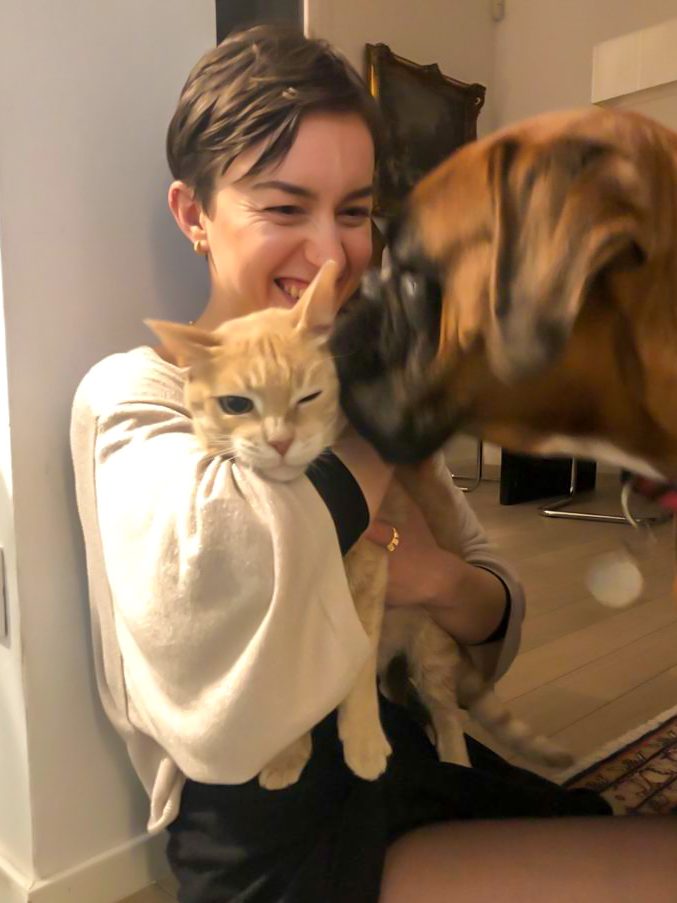
Key points
- Laughing online can be a way to show agreement and common ground (laughing with), but also a very destructive device (laughing at)
- Laughter shows dis/affiliation and does things – insulting, persuading, triggering both negative and positive emotions, promoting, or hindering, ideas, etc.
- In specific contexts where impoliteness is expected and aggression is normalised, interactants use laughter to engage in practices very infrequent elsewhere
5ちゃんねるの「w」の意味と使い方
「w」は笑い(warai)が省略され、2ちゃんねるから広まったネットスラングである。現在wwwwwのようなwの連打もよく使用されている。wは笑っているような様子を字で表現するので、面白さ、心地良さ、楽しでいる状態を示す場合が多いが、文脈によって違う意味に捉えることができる。本研究では5ちゃんねるで実際にどのような意味でwが使われているかを見ていきたいと思う。
5ちゃんねる(元の2ちゃんねる)はインターネット上の掲示板である。匿名性が特徴で、他の掲示板と比べると全く知らない相手にもかかわらず(タメ口を使い、無礼な態度を取ることも珍しくない。5ちゃんねるの中で、私が研究してきたのは「コロナワクチンってやばくない?」というスレッドである。そこからデータを収集して、wを含んでいる/含むメッセージに焦点を絞り、分析を行なった。結果から言うと、wはポジティブな面だけではなく、いじめに繋がるような攻撃的な笑い(嘲笑)でもあり得ることが判明した。5ちゃんねるの中に、この攻撃的な笑いのほうが見られやすいことも明らかになった。そして、優位的・支配的な笑いも頻繁に現れる。これは笑う人が笑われる人より優れていると伝えている。攻撃的・優位的な笑いはその対象になる人との関係を壊してしまう。このように「w」はユーモアとは言えない、多様な機能を持っていることが明確になった。
しかし、なぜ普段避ける人間関係を壊す行動を取るのか。一つ目の理由は5ちゃねるは他者を攻撃しやすい状況で、ユーザーが日常生活と異なった行動がしやすい。笑われる人との人間関係を壊す二つ目の理由は、誰かをいじると、その人の意見が好まない他者と距離を縮めるのである。例えば、ワクチン反対派が強い5ちゃんねるでは、ワクチン推進派を攻撃的・優位的な笑いを対象にする結果、ワクチン反対派の中で人気を得る。相手をからかった上で、他の誰かと一緒になったり、自分が優れていることを伝えたりするのは攻撃・優位的な笑いを使う理由である。
文脈や状況によって、笑いの意味や種類がたくさんあり、必ずしも親しさとユーモアを示しているわけでない。今後とも、幅広い概念である笑いについて観察する予定である。
Overview
I’m currently at the 4th Conference on Approaches to Digital Discourse Analysis (ADDA4), where I’ve presented a study on how Japanese online users dis/affiliate with others through (written) laughter. This post builds on that presentation and an article currently under review at the Journal of Corpora and Discourse Studies (JCaDS).
Laughter has been traditionally investigated as a by-product of humour. In what follows, however, I will show that it can perform a wide range of functions by analysing the uses and meanings of written laughter in the subforum コロナワクチンってヤバくない? ‘isn’t the COVID vaccine insane?’, within the Japanese online forum 5ちゃんえる ‘Channel 5’. More specifically, I will look at the character ‘w’ (either as a single character or in strings, e.g., ‘wwww’), which comes from the word 笑い warai ‘laugh’ and conventionally denotes laughter in Japanese.
Channel 5
I chose Channel 5 as the data source because anonymity and the normative standards of the community encourage an informal, direct and often quite aggressive way of talking (typing?) which favours the production of non-humorous laughter in written texts. The subforum ‘isn’t the COVID vaccine insane?’ frames the COVID-19 vaccine as a highly controversial topic, prompting interactants to convey their feelings and attitudes towards this matter and signalling (dis)affiliation with the (no-vax) stance in a variety of ways, one of which is laughter. It is then an appropriate context to look at types of laughter which may be relatively uncommon in our everyday life, where we usually hedge our opinions and stances to save ours and other people’s faces and maintain good relationships.
Data collection and analysis
Using the free web scraping tool ParseHub, I collected all messages from the first three threads in the subforum, for a total of 3,006 comments (285,582 tokens) produced between May and July 2021. The concordance tool in AntConc (which provides examples of a “word” as it occurs in the data) was run to collect all instances of “w” (either a single character or in strings). After manual removal of invalid examples (e.g., instances where “w” is part of a user ID or a URL) and duplicates, I selected a total of 195 instances of “w” within their “laughter-text” (i.e., the text preceding and provoking written laughter). These were manually coded through systematic close-reading. In this post, I focus on one research question, that is: What are the functions of laughter-text in the data?
What laughter-text does
In my data, I identified three types of laughter-text: aggressive (37%), superiority (27%) (collectively referred to as disaffiliative) and affiliative (33%). Below are their working definitions and some textual examples.
Aggressive
Aggressive laughter-text is a direct, clear and unambiguous way of threatening the recipient(s)’ face and makes often use of words and expressions usually associated with impoliteness (e.g., insults).
991 > > 994↓ここに書いてるけど。馬鹿中卒だから、読めないんだね。可哀想な中卒無職おっさんwww
991 >> 994 It’s written right here ↓. You can’t read it because you’re a stupid high school dropout. Poor unemployed middle-aged manwww
Superiority
Superiority laughter-text also threatens face but does not present explicit insults and tends to be semantically associated with notions of competence, education and background.
948 >> 944 そうなの? 今、早稲田の院生だけど、お前の学歴は?
949あとは個人の考え方の自由 打ちたい人は打てばよいよwwww
950 >> 948やっぱり、俺のほうが上だわ w
948 >> 944 Is that so? I’m a graduate student at Waseda now, but what about your educational background?
949 After all, it’s a matter of personal choice. If you want to get vaccinated, go ahead and do it wwww
950 >> 948 As I thought, I’m above you w
Affiliative
Affiliative-laughter text performs politeness by showing common ground, agreement and shared values.
502これでもワクチン接種する人はタダのアホとしか言いようがない www
504 >> 502 このデータ見て毎回思うけどプラセボでこれだったらそもそもワクチンなんていらんやん www
502 Even so, those who are getting vaccinated are just idiotswww
504 >> 502 Every time I see this data I think that if it’s like this with a placebo, we don’t need vaccines to start with www
Here, the producer of 504 shows agreement with the stance expressed in 502.
Importantly, however, laughter-text works on a binary position structure: when it performs impoliteness towards, hence disaffiliating from, someone/something (e.g., the pro-vax stance), it simultaneously conveys affiliation towards someone/something else (e.g., the anti-vax stance), and viceversa. Affiliative and disaffiliative laughter-text are in fact two sides of the same coin because there is no affiliation without disaffiliation. Point of view is, indeed, crucial.
In sum
Laughter-text performs intricate face-work that goes well beyond the expression of humour alone. In my data, the pervasiveness of disaffiliative laughter-text suggests that among users of Channel 5 “w” is a device conventionalised for the expression of impoliteness. Put differently, once the laughing character is recognised, it alerts users to expect some degree of aggression, because that is the way interaction works in this setting. The specificity of the forum and the limited size of the sample do not allow for generalisations, but one thing at least is clear: laughter does things – insulting, persuading, triggering both negative and positive emotions, promoting, or hindering, ideas, etc. It is a very serious matter worth studying.

Leave a comment